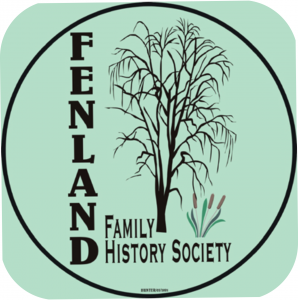The speaker for this month was Brian Jones,who filled in at very short notice for Ann Cole who had transport problems.
The topic for Brian’s talk was “Surnames”, and what they could tell us about the past and the meanings of many names in use today.
Before the Normans arrived in England, people did not have surnames, but were known by nicknames or descriptive names e.g. Red , Black etc. Today there are more than 45000 different surnames in England. 30% of Welsh population are named Jones while 6% of the rest of the U.K are called Jones making it the second most numerous name in U.K. Smith is still the most numerous name.
Brian had, naturally, researched the name of Jones and found that it originated in Huntingdonshire in 1279. as a surname.
It was not until 1400 that hereditary surnames were handed down through the male line.
Immigration and migration caused many name changes as there were no forms to fill in, and many people decided to make new lives for themselves by simply changing their names. So some names may not have disappeared, but instead have just been changed at the whim of the family, for reasons best known to themselves!!
Descriptive names e.g. John the butcher became Mr Butcher, and descriptive nicknames were recorded as true names e.g. Mary of the woods became Mary Woods.
Many Irish and Scottish names were derived from the Gaelic, and spelling and dialect gradually altered many names.
In the early days of immigration surnames indicated the origin of the person : Beamish from Bohemia; Hannay – Hainault; Janeway – Genoa; Moore – Morocco; Brisowe – Bristol or Burstow ; Vyse – Devises.
Others denoting origin were: Surtees – on the Tees; Pickersgill – stream with pike in it; Hope or Holme – raised in the Fens; Burn or Bourne – stream; Fleet – stream, river , estuary; Sike or Sykes – marshy stream.
Many community names became surnames: Chapman – shopkeeper; Latimer – interpreter; Leech – physician; Barker – tanner; Jenner – engineer; Milner – miller; Bannister – bath keeper; Pargetter – plasterer; Arkwright – maker of arks and chests, while Mason; Thatcher; Fisher etc. were descriptive of industry.
Names such as King, Pope, Bishop, Monk and Abbott were nicknames or travelling players of mystery or religious plays, who played the same roll each year as they travelled about the country.
Many thanks to Brian,who in his inimitable way, provided an interesting and amusing evening for all the members of the FFHS.
[Judy Green]
October 2024 Meeting: Gilli Galloway, Governor at QEH and Volunteer Ambassador for Tapping House
At the October meeting we were delighted to welcome Gilli Galloway to talk to us about two local and well-known institutions – the Queen Elizabeth
